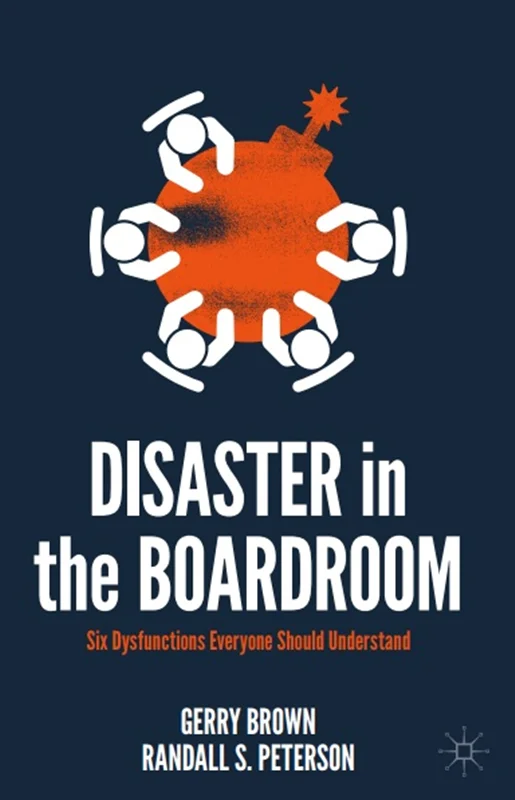Why when companies come crashing down, do we hear of boards who have failed in their fiduciary duties? Or that they have been ignorant, complacent or downright complicit in these scandals and downfalls?
Of course, corporate scandals are nothing new, nor are they limited to any one geography. They are a damning indictment of our systems of corporate governance around the world. And yet, despite this frequency, little or nothing changes. We shrug and move on, accepting they are an unavoidable part of the system that produces incredible wealth for economies and societies. But it should not be that way. Disaster in the Boardroom shows how boards can be better. Looking at why these scandals happen, authors Peterson and Brown present in-depth case studies of major global corporations – including recent contemporary scandals associated with companies such as BP, Facebook and Uber – using the optic of their unique, original and compelling ‘six dysfunctions of the board’ analysis to reveal their particularities but also how they can be overcome.
In this book, Brown and Peterson explore common attributes of scandals such as lack of independence from management, missing key voices, cultural amplification, diffusion of responsibility, rule-bound cultures and groupthink. They also identify ways to strengthen boards, improve their culture and competence, and give directors and others the power to take action and ultimately prevent disasters from happening.
Disaster in the Boardroom is essential reading for every executive in every boardroom, those aspiring to board positions as well as anyone interested in why boards fail. It has never been more important to pre-identify and eradicate these boardroom dysfunctions – not least so that their impacts upon society can better seen, understood, mitigated, and avoided.

